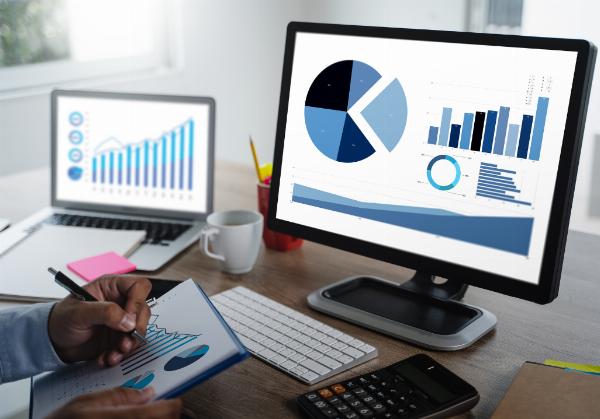Property Accounting Services: Your Guide to Professional Financial Management

Introduction
Investing in real estate demands a financial skill set that goes well beyond the basics if owners want to truly boost returns and stay within the law. Dedicated property accounting services teams follow a clear, organized system that keeps portfolios on track and spot anomalies, giving investors the level of insight regular bookkeepers rarely provide.
This guide looks at how property accounting services underpins smooth real estate operations, outlining the unique services available, tips for getting them up and running, and the concrete gains owners and backers can expect.
Understanding Property Accounting Services
Property accounting services bundle financial tools tailor-made for the ins-and-outs of real estate work. Unlike everyday bookkeeping, these offerings zero in on:
- Tracking and improving rental income
- Sorting every expense by each property
- Calculating depreciation for different buildings
- Managing tenant-security deposits
- Breaking out maintenance costs per unit
- Keeping taxes in line with real estate rules
Because property accountants live and breathe housing law, tax breaks, and sector-specific numbers, their reports come cleaner and spot-saving ideas faster than general-ledger teams.
Core Functions of Property Management Accounting:
1) Revenue Monitoring and Optimization
Sound property accounting begins with a thorough revenue-monitoring system. Such a system tracks:
- Monthly rent receipts for each unit across all buildings
- Late-payments and any fees added to tenant accounts
- Estimated losses from vacancies compared to current market rents
- Extra income streams, like parking charges and utility reimbursements
To boost revenue, accountants advise on competitive pricing, smart lease renewals, and new income channels.
2) Expense Tracking and Control
Effective real estate accounting sorts every cost so owners save money and file taxes wisely. Accountants break expenses into four main buckets:
- Operating costs – utilities, repairs, insurance, and management fees
- Capital outlays – major renovations, new boilers, and major upgrades
- Admin expenses – lawyers, accountants, and marketing work
- Financing charges – mortgage, interest, and closing costs
This clear breakdown helps owners spot waste and claim every possible deduction.
3) Financial Reporting and Analysis
Property accountants prepare regular reports that turn raw numbers into useful guidance:
- Monthly profit-and-loss by building
- Cash-flow forecasts and notes on key variances
- Year-end summaries ready for tax filings
- Metrics such as cap rate and internal-return rate
Together, these reports track performance, alert teams to trouble, and guide future investment decisions.
Specialized Services Offered by Real Estate Accountants
1) Tax Planning and Compliance
Real estate accountants deliver a complete suite of tax services, including:
- Depreciation schedule optimization
- 1031-exchange coordination
- State and local tax compliance
- Quarterly estimated-tax calculations
Careful timing of deductions and the right investment structure, implemented by property accountants, can yield substantial tax savings.
2) Tenant Financial Management
Professional property accounting features targeted tenant-financial tracking:
- Security-deposit accounting and compliance
- Rent-roll maintenance and analysis
- Eviction-cost tracking and recovery
- Lease-agreement-financial-term analysis
By handling these tasks, accountants help owners stay within local rules, boost rental income, and reduce exposure to costly mistakes.
3) Property Performance Analytics
Advanced property management accounting generates actionable performance analytics such as:
- Cost-per-quare-foot analysis
- Occupancy-rate trending
- Maintenance-cost benchmarking
- Market-comparison studies
Armed with this data, owners can confidently decide on upgrades, adjust rents, and fine-tune their overall portfolio strategy.
Implementation Strategies for Property Accounting Services
1) Technology Integration
To deliver these benefits, today’s property accounting teams rely on modern technology:
- Cloud-based systems offering real time access
- Automated rent collection and payment processing
- Integrated property management software
- Mobile apps for quick expense tracking
This tech not only saves time but also boosts accuracy, reporting speed, and the owner’s peace of mind.
2) Process Standardization
Dedicated property accountants set clear, repeatable routines, such as:
- Monthly closing pages locked by the fifth business day
- Step-by-step vendor-sign-off grids
- Checklists for coded expense receipts
- Weekly schedules for distributing financial packages
These shared works keep records predictable and trim the chance of slips.
3) Compliance Management
Property accounting teams bundle compliance checks into each month:
- Pass-through testing against city rent caps
- Book-report clips for fair-housing formulas
- Line-item tagging for green-rule costs
- Alert feeds for lapsing insurance cover
A steady compliance rhythm shields owners from fines and keeps rents rolling.
Benefits of Professional Property Accounting Services
1) Enhanced Financial Visibility
Outside accountants open up numbers with:
- Live dashboard tiles that refresh overnight
- Profit drop-outs shown by building and by week
- Speed gauges for income trends and budgets
- Sharp alerts when actuals drift more than 5 percent
That clear view invites early fixes and smarter spending.
2) Risk Mitigation
Professional teams fortify assets through:
- Layered sign-offs on every journal entry
- Surprise turnover audits
- Up-to-date reviews of liability umbrellas
- Scheduled sweeps for changing laws
These shields defend cash, staff, and reputations.
Operational Efficiency
Outsourced accounting trims daily grind with:
- Robotic data capture from invoices and e-mails
- Plug-ins for payables in three clicks
- One screen that pulls reports for all lenders
- Week-ending tasks tracked in shared calendars
Less paperwork gifts managers the time to grow portfolios.
Selecting the Right Property Accounting Service Provider
Evaluation Criteria
When choosing a property accounting service, ask yourself whether the firm brings genuine industry experience and a clear focus on real estate clients. You should also check what technology it uses—well-designed software can streamline records and provide real-time updates. Flexibility matters too; as your portfolio grows, the service should scale easily without hidden fees.
Before signing, talk to current clients to verify references and get a sense of the firm’s reputation. Taking these steps gives you the confidence that the provider can handle your unique management needs.
Service Level Agreements
Strong property accountants back their work with precise service-level agreements that spell out core features. Typical items include:
- When monthly reports land on your desk
- How quickly queries get answered
- The process for fixing any errors
Many firms even publish performance dashboards so you can see key metrics in real time, keeping everyone aligned and accountable.
Maximizing Your Investment in Property Accounting Services
Outsourcing property accounting is more than a cost; it’s a strategic move that can help your entire portfolio thrive. Skilled accountants combine industry know-how with the latest tools, turning raw data into usable insights that boost revenue and trim unnecessary expenses.
Owners who adopt full-fledged accounting services often notice:
- Stronger profits
- Fewer compliance headaches
- Quicker, better-informed decisions
Savings usually come from smarter tax plans, tighter budget controls, and targeted reports that highlight every asset.
To realize these benefits, consider partnering with a proven real estate accounting firm—and watch your property operations gain momentum and resilience.
Note: IndiBlogHub features both user-submitted and editorial content. We do not verify third-party contributions. Read our Disclaimer and Privacy Policyfor details.



